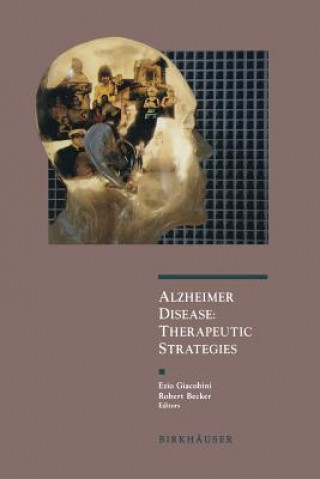
Code: 06615264
Alzheimer Disease
by Ezio Giacobini, Robert E. Becker
Since the apoE4 allele is a risk factor or susceptibility gene in late-onset familial and sporadic AD, the mechanism of disease expression may involve metabolic effects that are isoform specific. Isoform-specific interactions of a ... more
- Language:
 English
English - Binding: Paperback
- Number of pages: 27
Publisher: Springer, Berlin, 2012
- More about this

70.86 €

Low in stock at our supplier
Shipping in 14 - 18 days
Potřebujete více kusů?Máte-li zájem o více kusů, prověřte, prosím, nejprve dostupnost titulu na naši zákaznické podpoře.
Add to wishlist
You might also like
-

Joyride Flatout: Hot Rods and Dream Machines TP
34.60 € -4 % -

Domination and Contestation
79.87 € -3 % -

Drawing Then: Innovation and Influence in American Drawings of the Sixties
69.63 € -2 % -

Imperial Gazetteer of India, Volume 7
48.43 € -

In den Gefilden der römischen Feldmesser
146.64 € -

Diversifikationsstrategie bei Aufbau einer neuen Marke
50.27 € -5 % -

GER-HEIDELBERGER KATECHISMUS N
37.88 €
Give this book as a present today
- Order book and choose Gift Order.
- We will send you book gift voucher at once. You can give it out to anyone.
- Book will be send to donee, nothing more to care about.
More about Alzheimer Disease
You get 175 loyalty points
 Book synopsis
Book synopsis
Since the apoE4 allele is a risk factor or susceptibility gene in late-onset familial and sporadic AD, the mechanism of disease expression may involve metabolic effects that are isoform specific. Isoform-specific interactions of apoE therefore become critical in the mechanism of AD pathogenesis. Detailed characterization of the binding of the apoE isoforms with proteins and peptides relevant to the pathology of the disease may be critical in understanding disease pathogenesis. These critical isoform-specific interactions of apoE may involve interactions with proteins and pep tides in the defining neuropathologic lesions of the disease, the neurofibrillary tangle and senile plaque. Other possible critical isoform-specific interactions include the mechanism of internalization, intracellular trafficking, and subsequent metabolism. In addition, differential post-translational modifications of apoE isoforms may determine differences in metabolism contributing to the pathogenesis of the disease. Oxidation of apoE may confer several isoform-specific, biochemically distinct properties. Since {3A peptide binds apoE in the lipoprotein binding domain of the protein and not in the receptor-binding domain, apoE could target bound {3A4 peptide to neurons via the LRP receptor. Internalization of the apoEI {3A peptide complex into the cell, by the same route as the apoE-containing lipoproteins, would result in incorporation into primary lysosomes and pH dependent dissociation. The demonstration of apoE in the cytoplasm of neurons, with isoform-specific interactions of apoE with the microtubule-binding protein tau demonstrated in vitro, suggest additional, testable hypotheses of disease pathogenesis.
 Book details
Book details
Book category Knihy po anglicky Medicine Medicine: general issues Health systems & services
70.86 €
- Full title: Alzheimer Disease
- Subtitle: Therapeutic Strategies
- Author: Ezio Giacobini, Robert E. Becker
- Language:
 English
English - Binding: Paperback
- Number of pages: 27
- EAN: 9781461581512
- ISBN: 9781461581512
- ID: 06615264
- Publisher: Springer, Berlin
- Weight: 801 g
- Dimensions: 235 × 155 × 27 mm
- Date of publishing: 21. May 2012
Trending among others
-

Why Has Nobody Told Me This Before?
14.84 € -8 % -

It's Ok That You're Not Ok
16.89 € -17 % -

CBT Toolbox for Children and Adolescents: Over 220 Worksheets & Exercises for Trauma, ADHD, Autism, Anxiety, Depression & Conduct Disorders
30 € -21 % -

Oxford Handbook for the Foundation Programme
51.19 € -

Stress: Concepts, Cognition, Emotion, and Behavior
184.84 € -

Oxford Handbook of General Practice
48.02 € -
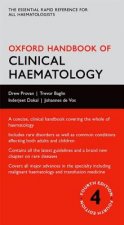
Oxford Handbook of Clinical Haematology
58.67 € -

Toward A Psychology of Being-Reprint of 1962 Edition First E
9.72 € -

Checklist Manifesto
33.48 € -7 % -

General Practice - Clinical Cases Uncovered
66.35 € -
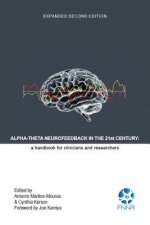
Alpha-Theta Neurofeedback in the 21st Century
82.53 € -

Acupuncture for Pain Management
164.66 € -

Point of Care Ultrasound
121.75 € -

Body Keeps the Score
27.23 € -23 % -

Anatomy & Pathology:The World's Best Anatomical Charts Book
38.09 € -2 % -

Twelve Patients
15.76 € -23 % -

Holidays in Soviet Sanatoriums
28.15 € -16 % -

Oxford Handbook of Clinical Diagnosis
45.46 € -
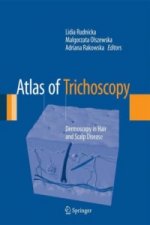
Atlas of Trichoscopy
356.68 € -

International Trauma Life Support for Emergency Care Providers
107.52 € -

Checklist Manifesto
15.25 € -19 % -
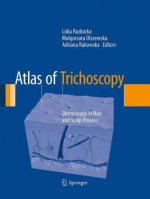
Atlas of Trichoscopy
260.62 € -

Schizoaffective Disorder Simplified
22.72 € -

Wellness Coaching for Lasting Lifestyle Change
25.18 € -19 % -

Integrative Medicine
109.98 € -

Taylor's Differential Diagnosis Manual
122.78 € -

Truth About Big Medicine
83.45 € -

Attachment Effect
20.06 € -

Loving Someone with OCD
24.47 € -10 % -

Post-Acute and Long-Term Care Medicine
131.28 € -

Silent Twins
11.15 € -23 % -

A Fractured Mind
28.56 € -

Five Patients
11.15 € -23 % -

Oxford Handbook of Sport and Exercise Medicine
50.89 € -2 % -

Methods for the Economic Evaluation of Health Care Programmes
73.83 € -

Polyvagal Theory and The Pocket Guide to the Polyvagal Theory, Two-Book Set
71.06 € -8 % -

Innovator's Prescription: A Disruptive Solution for Health Care
19.86 € -23 % -

Cecil Essentials of Medicine
86.52 € -4 % -

Ultrasound for Primary Care
90.31 € -5 % -

Lifestyle Medicine
152.17 € -

Urgent Care Dermatology: Symptom-Based Diagnosis
74.95 € -

Clinical Psychology: A Very Short Introduction
11.36 € -13 % -

Prescription for Psychiatry
49.56 € -

Improvised Medicine
127.28 € -

Beyond the Checklist
15.56 € -19 % -

Mille the Cat has Borderline Personality Disorder
13.71 € -

Pocketbook of Differential Diagnosis
35.73 € -6 % -

Psychic Cold Reading Workbook - Practical Training and Applications
17.30 € -

Trauma-Informed Practices With Children and Adolescents
72.19 €
Osobný odber Bratislava a 2642 dalších
Copyright ©2008-24 najlacnejsie-knihy.sk Všetky práva vyhradenéSúkromieCookies


 21 miliónov titulov
21 miliónov titulov Vrátenie do mesiaca
Vrátenie do mesiaca 02/210 210 99 (8-15.30h)
02/210 210 99 (8-15.30h)